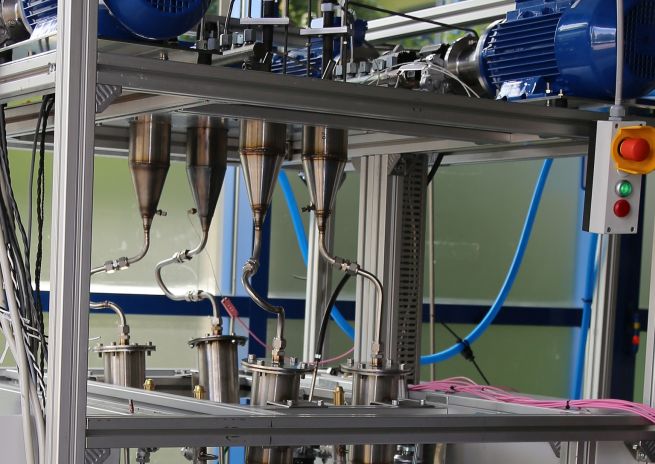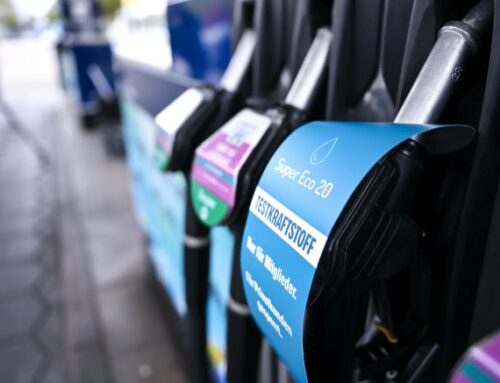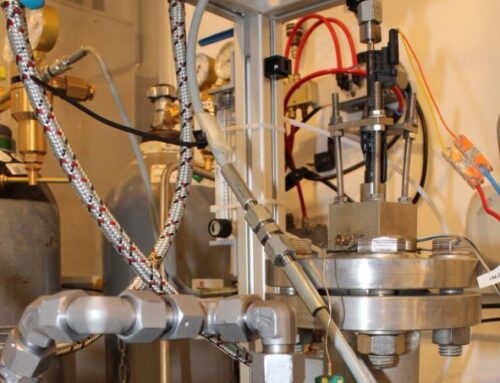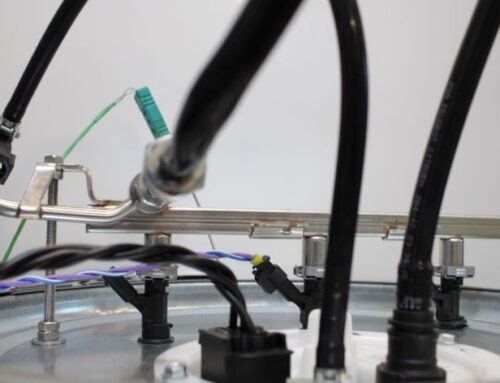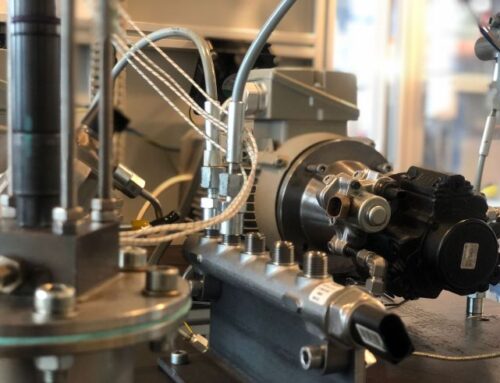16 January 2019 –
High-performance fuels based on methanol
To achieve its climate targets, Germany has to reduce its total CO2 emissions by 38 % by 2030 compared to 1990 levels. One measure to achieve the targets is to increase the share of renewable energy sources in the energy supply. Time is crucial, therefore efficient, economically sensible and practicable solutions are required. The “C³-Mobility” research project, which has recently started, is to investigate pathways for various climate-neutral, electricity-based fuels. They are produced from CO2, water and renewable electricity. An evaluation carried out in advance showed that the “methanol path” offers good conditions for meeting the above-mentioned requirements. Renewable methanol can be produced in large quantities at relatively manageable efforts and then easily transported as a liquid energy source. The goal of the technologies in question is to make a significant contribution to the reduction of CO2 emissions in the short term is estimated to be very high and is therefore being investigated in this project.
The starting point for the research will be the further processing of methanol into new renewable fuels for gasoline and diesel engines. These include methanol-to-gasoline (methanol to petrol) (MtG) and medium- and long-chain alcohols. One focus is on the production of high-octane gasoline in a pilot plant. The development of new fuel synthesis processes and combustion concepts is supported by interdisciplinary research on material compatibility, fuel stability, exhaust aftertreatment and fuel sensor technology.
The vehicle suitability of the new fuels produced in the project will also be tested under real driving conditions. Applications range from gasoline and diesel engines in passenger cars to light commercial vehicles and heavy-duty commercial vehicles. To this end, application- and fuel-specific problems will be assessed and a total of 8 demonstration vehicles will be built. In addition, the MtG fuel produced in the demonstration plant will be demonstrated in a car fleet.
The project results lead to a holistic evaluation of all options. This includes the characteristics of the synthesis pathways, the engine technology including efficiency and pollutant emissions as well as the compliance of new energy sources with today’s fuel legislation and possible fuel mixing strategies. In addition to the manufacturing and usage paths, market introduction and sales are also included in the overall assessment.
In the “C³-Mobility” project, 29 partners from the energy supply, process engineering, automotive and industrial engine industries as well as research and development work together in a cross-sector consortium. The OWI Oel-Waerme-Institut gGmbH and TEC4FUELS GmbH are partners in this consortium and are investigating how the high operational reliability and service life time of fuel-carrying engine components can be ensured when operating with these new fuels. While the OWI investigates the fuel ageing and the interaction of fuels with engine oil, TEC4FUELS concentrates on the compatibility of new fuels with the fuel-carrying technical components and their materials.
This research project is funded by the Federal Ministry of Economics and Energy. The author is responsible for the content of this publication.
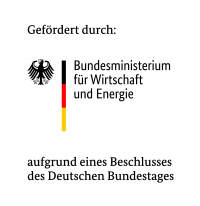
About the C³-Mobility-Consortium
The research project C³-Mobility (“Closed Carbon Cycle Mobility”) focuses on the development of production technologies for the production of renewable fuels and practical tests in the transport sector. The consortium consists of 29 partners from industry, universities and non-university research institutions.
- FEV Europe GmbH
- Opel Automobile GmbH
- Ford-Werke GmbH
- Daimler AG
- Volkswagen AG
- BMW Group
- Hyundai Motor Europe Technical Center GmbH
- Liebherr-Components Deggendorf GmbH
- Continental Automotive GmbH
- Continental Mechanical Components Germany GmbH
- Denso Automotive Deutschland GmbH
- AVL Deutschland GmbH
- AVL qpunkt GmbH
- innogy SE
- Chemieanlagenbau Chemnitz GmbH
- Shell Global Solutions
- Umicore AG & Co. KG
- Deutz AG
- Grillo Werke AG
- TEC4FUELS GmbH
- Weissgerber Engineering
- Oel-Waerme-Institut gGmbH
- Forschungszentrum Jülich GmbH
- Fraunhofer ISE
- TU Darmstadt
- TU Freiberg
- TU Dresden
- FH Aachen
- RWTH Aachen University

